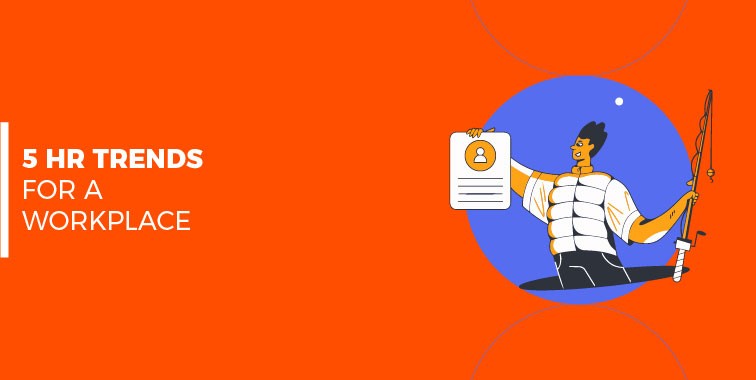5 HR Trends For a Workplace
There have been some slight or sometimes even big changes in the way we work and treat (in the sense of attitude) our colleagues recently. Many of these changes started prior to the pandemic, were accelerated by it, and have become permanent aspects of the workplace.
So let us discuss 5 HR trends we all face in workplaces.
#1 The Future Of Work Is Employee Well-being
Employee well-being is no longer an employee benefit. Rather, well-being now is an employer’s opportunity to support employees in all aspects of their personal and work lives.
Let’s face it! Employee well-being has expanded beyond physical well-being to include emotional, financial, social, and career wellness.
As the pandemic has gone well into its second year, the focus on employee well-being has shifted from improving organizational benefits to enhancing the individual and family life experiences of workers. And venture money is following this HR trend, with tools like League, Virgin Pulse, Limeade, BetterUp, etc
#2 Hybrid Work Is What The Majority Of Workers Want
Hybrid work is here to stay. Accenture’s survey finds that 83% of workers prefer a hybrid work model and that 63% of high-growth companies have already adopted a “productivity anywhere” workforce model. For both employees and employers, work from anywhere is about owning results, regardless of where or when work happens.
In addition, employers need to communicate how their approach to management is evolving as work from anywhere expands. This means clearly defining how they will create a fair and equitable workplace for all employees regardless of location, communicate how leaders will manage employees they never physically see, and how teams will achieve work flexibility while meeting their goals. Leaders must re-imagine how the post pandemic business landscape will operate for their organization and communicate this to every worker.
#3 Employees Seek Companies Whose Values Match Their Own
A sample of 753 business leaders, HR leaders and knowledge workers uncovered eight out of ten employees who say it is important for their company’s values to align with their own.
These findings are especially important as 75% of workers say they expect their employer, and business in general, to be a force for good in society. This percentage reaches 80% for those under 45 years old. Furthermore, a recent research found more than half of knowledge workers say they would quit their job if their company’s values did not align with their own, and only one in four of knowledge workers are likely to accept a job with a company whose values do not align to their own.
#4 Skills Based Hiring Is on the Rise
Artificial intelligence is transforming the labor market, automating certain jobs, and creating entirely new jobs requiring new in-demand skills. Our 21 HR Jobs of the Future research identified a range of new HR jobs to be created between now and 2030, many focused on humans working seamlessly with machines, such as Algorithm Bias Officer and Human Machine Teaming Manager.
Being able to demonstrate one’s competency in these new skills has become the currency for talent mobility, as degrees have shown to be a bad proxy for possessing in-demand skills. In fact, Glassdoor reports that 15 companies ranging from Google to Hilton Hotels and Apple, are offering well-paying jobs to those possessing in-demand skills, but lacking a degree.
#5 Longevity Leads To Multiple Careers
This does not mean working in the same job for 60 years, it does pose an important question for HR leaders: How can increasing a company’s commitment to lifelong learning be used to up-skill and re-skill current workers over what may be a 60 year career?
Amazon Career Choice has committed $1.2 billion to fund hourly workers in bachelors or associate’s degrees, high school diplomas, GEDs, and English as a Second Language. They also will offer proficiency certifications targeted to re-skill workers for in-demand fields such as Engineering, Information Technology, Mechanical and Electrical Trades, Healthcare, Construction, Transportation, and Accounting.
The new world of work requires leaders, both HR and business, ask a new set of questions about work, the worker, the workforce and the workplace such as:
How will leaders lead in this new world of work?
What types of improvements will enhance the employee experience?
How will leaders communicate the guardrails of working successfully from anywhere?
One thing is clear, leaders must demonstrate resilience, empathy, transparency, and digital fluency to ensure everyone has a voice in creating the future of work.




